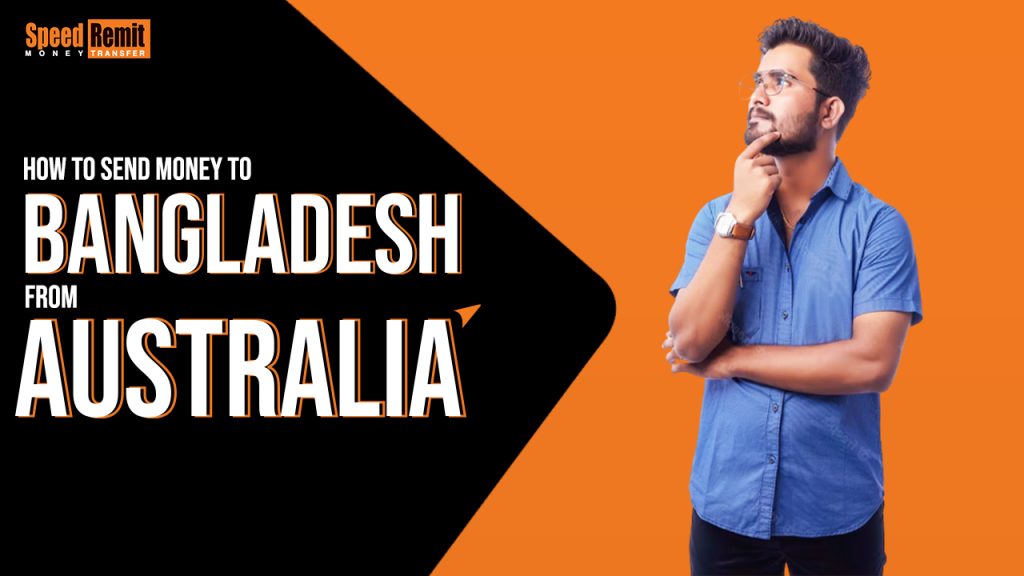Helping loved ones living away by supporting them financially is something that millions of expats living in the UK feel very responsible for. Remittances make a big difference when people pay family expenses, cover educational costs, or help seniors. Nonetheless, sending money from UK to Pakistan, India, or Bangladesh isn’t always as straightforward as it should be. While there are many modern online services for money transfer, plenty of obstacles make sending money to families back home difficult.
We look at the most common problems expats have when transferring money from UK to Pakistan, India or Bangladesh and how it affects their daily living as well as their financial peace.
Table of Contents
1. Shifting Exchange Rates: The Unseen Cost
A significant problem for expats is the constant fluctuations of exchange rates. A little difference in the exchange rate can significantly change how much family members get. Those who regularly pay money using this route, such as monthly workers between India and the UK, are mainly concerned. Because they become sterling pounds at the wrong time, they usually get less for their money.
There is an added problem when using standard remittance methods, since the exchange rate is frequently below the prevailing mid-market rate. Even top online money transfer platforms may be affected by significant changes in the market. Because of these challenges, planning finances can become impossible if money is needed on short notice.
2. Hidden Fees and High Transaction Charges
Many expats are surprised by the extra costs they find after transferring their money. While some services advertise “zero fees,” the real cost is tucked away in the exchange rate margins. Whether you aim to transfer funds from UK to India or Pakistan, the actual fee can sometimes add up to more than what’s stated upfront.
How much you will be charged depends on whether you use an international money transfer or a wire transfer, and who handles the transfer. Few banks take money from the sender & the receiver, leaving you with fewer funds. Though online money transfer service platforms generally have lower fees than banks, they’re not always transparent about all costs involved.
3. Regulatory Barriers and Compliance Delays
Complying with the necessary regulatory rules is a significant difficulty for expats. Anti-money laundering (AML) policies, Know Your Customer (KYC) checks, and other legal protocols, while essential for security, often result in delays and rejected transfers. It is most frustrating if you send money between the UK and Pakistan or Bangladesh, since the banking system in those countries may not follow all the same standards as elsewhere.
When account numbers don’t match exactly or when names are spelled differently, the sender and receiver won’t be able to complete the transaction. Even with online money transfer services, mistakes may keep your money from arriving for a long time.
4. Technological Gaps in Recipient Countries
Fintech has advanced more in the UK than in other places that are only now catching up. Users trying to move their funds from the UK to Bangladesh or India usually notice that the technology could be better organized when they receive their cash. Because of this difference, users often have to wait and use methods that may not be safe or nearby.
Because many seniors are still new to digital wallets and mobile banking, getting them used to switching to online money transfer services is not always easy. As a result, even the most streamlined digital platform can’t guarantee a hassle-free experience unless the recipient is equally equipped.
5. Trust and Security Concerns
Trust is the first thing that comes to mind when it comes to fund matters. Many people who have recently moved abroad worry about trying new online services because they fear fraud, data loss, or their transfers might not be completed. Plenty of discussions about investors losing money or platforms closing exist.
Because of this, many decide to use old technologies such as drafts and in-office agents, which are not always the fastest or least costly ways to transfer money. Those shipping funds to India or Pakistan through digital methods must invest time, use customer support, and appreciate transparency for trust to develop.
6. Transfer Time and Urgency Issues
Sometimes, speed is crucial. Whether it’s a medical emergency or a tuition payment deadline, delayed transfers can cause emotional and financial distress. Although online money transfer service providers claim instant or same-day delivery, many expats find this isn’t always the case, especially when transferring funds to remote or rural areas.
When there is to send funds from the UK to Bangladesh, the lag in digital transfer processing can cause significant issues for banking customers from rural areas. Despite paying additional fees for quick service, people who send money may find that their recipients receive it many days later.
7. Currency Conversion Complexities
Another technical issue is the actual currency conversion mechanism. You may see that when it is to send money from UK to Pakistan or India, the platform will first convert GBP into USD before converting it into the final currency. Due to these double conversions, both fees and lower payout amounts may be charged.
Additionally, when you convert your currency, it can have a significant effect on what you get. People putting money into another country must decide on a rate or risk having their funds affected by last-minute price changes. Even the best online money transfer services can’t eliminate these concerns.
8. Limited Transfer Options for Unbanked Recipients
Most people in South Asia cannot open bank accounts. This makes receiving international remittances a challenge. For expats trying to send money from UK to India or Bangladesh, it’s vital to find services that offer mobile wallet options, door-to-door delivery, or cash pickups.
Still, having these perks usually adds extra expenses or limits you to a small number of transactions daily. Because of this, the transfer service operates more slowly, so senders often have to break down their payments or turn to different providers, which adds even more effort.
9. Lack of Awareness About Better Alternatives
Many expats who want to send money from UK to India or Pakistan aren’t always aware of the top solutions available. Oftentimes, they use the same old methods, such as wire transfers and money orders, not realizing that more modern options give them better chances, quicker results, and a trusted experience.
People must know which online money transfer services to use for their transactions. Real-time notification of new rates and special tools to compare options place users in a strong position to earn more for their money.
Conclusion: Streamlining the Process for a Better Future
A lot of expats from the UK who are trying to send money to India or Pakistan often don’t know about the leading options. Elderly individuals rely on wire transfers and money orders, not understanding that newer ways to send money provide better success, faster results, and confidence.
People must find out which online money transfer services are right for them. Users can earn more by immediately noticing new rates and comparing currency exchange options.



